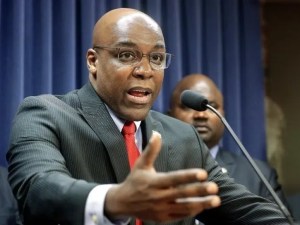Politico on Raoul
“Now, nearly two years in as Illinois attorney general, Raoul is a figure to watch as a state official responsible for translating protest and outrage on the streets into actionable criminal justice and policing reforms after Floyd’s death and the August shooting of Jacob Blake in neighboring Wisconsin. While not ignoring the attorney general’s role in consumer-protection issues, Raoul is steadily expanding the job to rethink how law enforcement approaches communities of color, including licensing officers and building a public database of police misconduct. It’s an issue he championed in the Legislature, but the weight of an attorney general title — and a world in which everyone can bear witness to police behavior with their mobile devices — has offered him a chance to pull new levers on criminal justice.”
Politico, Shia Kapos, 9/12/20
Can someone point out what the Illinois General Assembly has done on police accountability over the last two decades? If Raoul championed this issue, it hasn’t had a significant impact on police accountability in Chicago. It would have been nice for the author, Shia Kapos, to detail the reforms that Raoul championed for readers.
Also, licensing officers and a public database on police misconduct is not going to make a significant impact on the streets of Chicago. The Chicago Police Department does not have a long history of hiring individuals who were fired or fled other departments with a long history of misconduct. The CPD prefers that their corrupt and broken culture raise their own rogue officers so there is no need to hire them from the outside.
As for the public database, what exactly is going to go into it? Allegations? Sustained complaints? If all it took was a database then our Chicago Police Board Information Center and the Citizen Police Database Project would have eliminated police misconduct in Chicago. The database may indeed help smaller suburban and rural departments more efficiently check the background of officers before they hire them but there is no evidence it will have any impact on police misconduct in Chicago.
The truth is these are very meek proposals. They sound promising, but they are hardly innovative or tip of the spear proposals. They will not make the situation worse but I would expect nothing on the streets on the south and west sides of Chicago to change when these proposals become law.
Also, please remember that in 2013 Attorney General Raoul sponsored an amendment to the Illinois Freedom of Information Act that would make prosecutor’s offices around the state completely exempt from the law. It would be hard to frame such an amendment as a reform.
Did Kapos miss this, not look, or did she purposely not include it?
Judge Toomin


Political parties should not be involved in endorsing judges. Judges should not be allowed to make campaign donations. The incestuous relationship between the levers of power in the justice system and the political class in Cook County needs to be eliminated.
The Sun-Times editorial board is correct that the failure to endorse Toomin was pure political retribution. Additionally, Kim Foxx mishandled the Jussie Smollett case from beginning to end. However, the response to her handling of the case was undoubtedly impacted by the fact that Smollett and Foxx are Black. Perhaps there should be a special prosecutor to investigate the role of race in the response to the case.
COPA’s Follies Go Unnoticed
This report, while being an indictment on the Civilian Office of Police Accountability (COPA) and the Lightfoot administration, is also a harsh indictment of the media. Why isn’t someone monitoring whether COPA is abiding by its own policies for releasing body and dash-cam videos? It certainly seems as if the media is abdicating its responsibility to hold city departments accountable. We should not have to rely on the Inspector General’s Office to make sure COPA is releasing these videos.
Who Are the Organizers?
This is a really interesting piece by Kia Smith that was published in the South Side Weekly. While this is something that should show up in the Sun-Times or Chicago Tribune it never will. Searching for a deeper understanding of why people took to the streets should be a priority for the big Chicago media but alas it isn’t. Thus, it left to small outlets like this one to do it.
CPD Survey
The Consent Decree requires the Chicago Police Department to seek more input from the community, but simply sending out surveys fails to account for the abysmal relationship between the CPD and communities of color. Until concrete action is taken to improve this relationship, these types of exercises are pure theater meant to placate those without a true understanding of politics and race in Chicago.
A Mere Recounting of Facts
I understand the newsworthiness of the numbers in this report, but data such as these should really be the jumping off point for a deeper dive in the underlying causes of death. Simply stating numbers is not in itself a story and fails to inform the public of anything truly newsworthy. True journalism needs to go beyond a mere recounting of a bunch of facts and dig deeper to provide the reader with an understanding they can’t get from the press release the journalist received from the agency.



